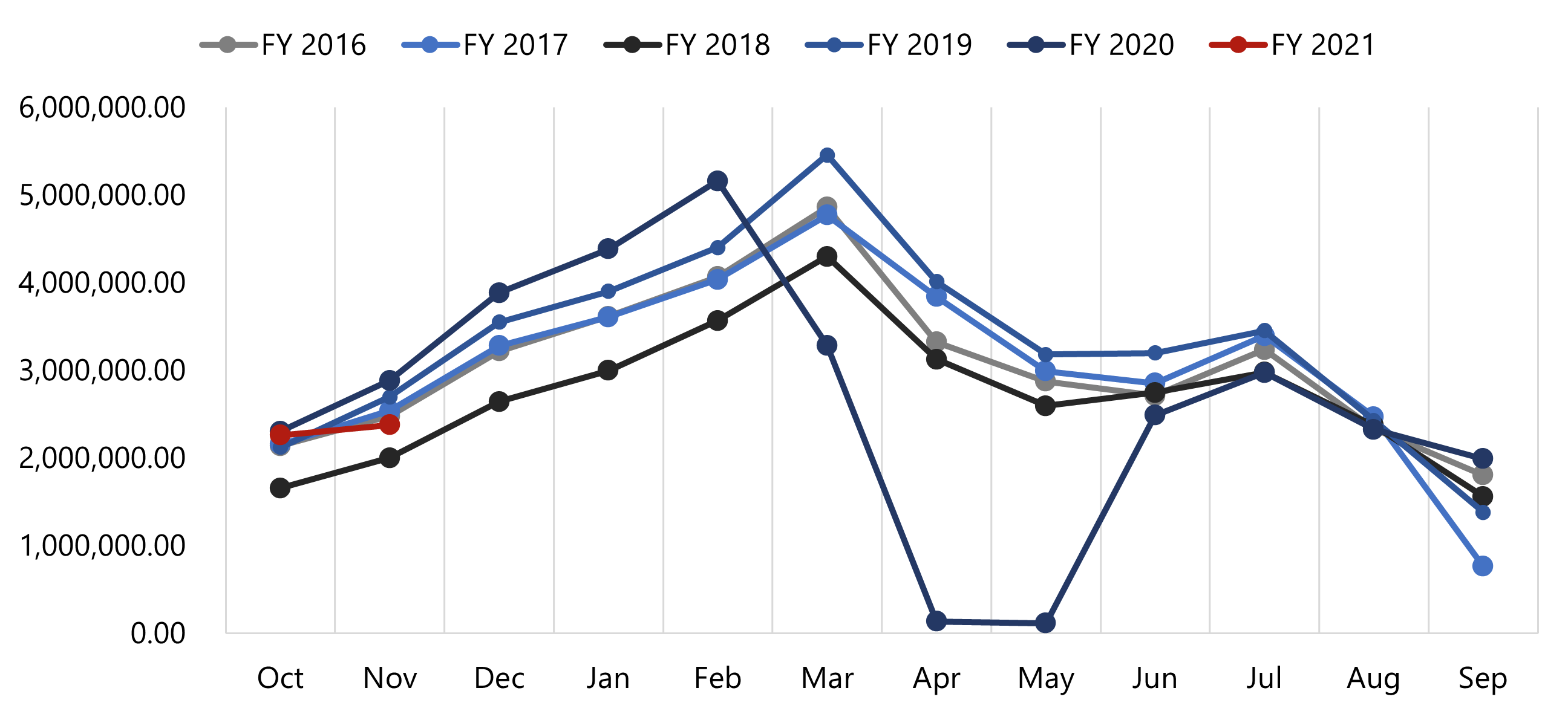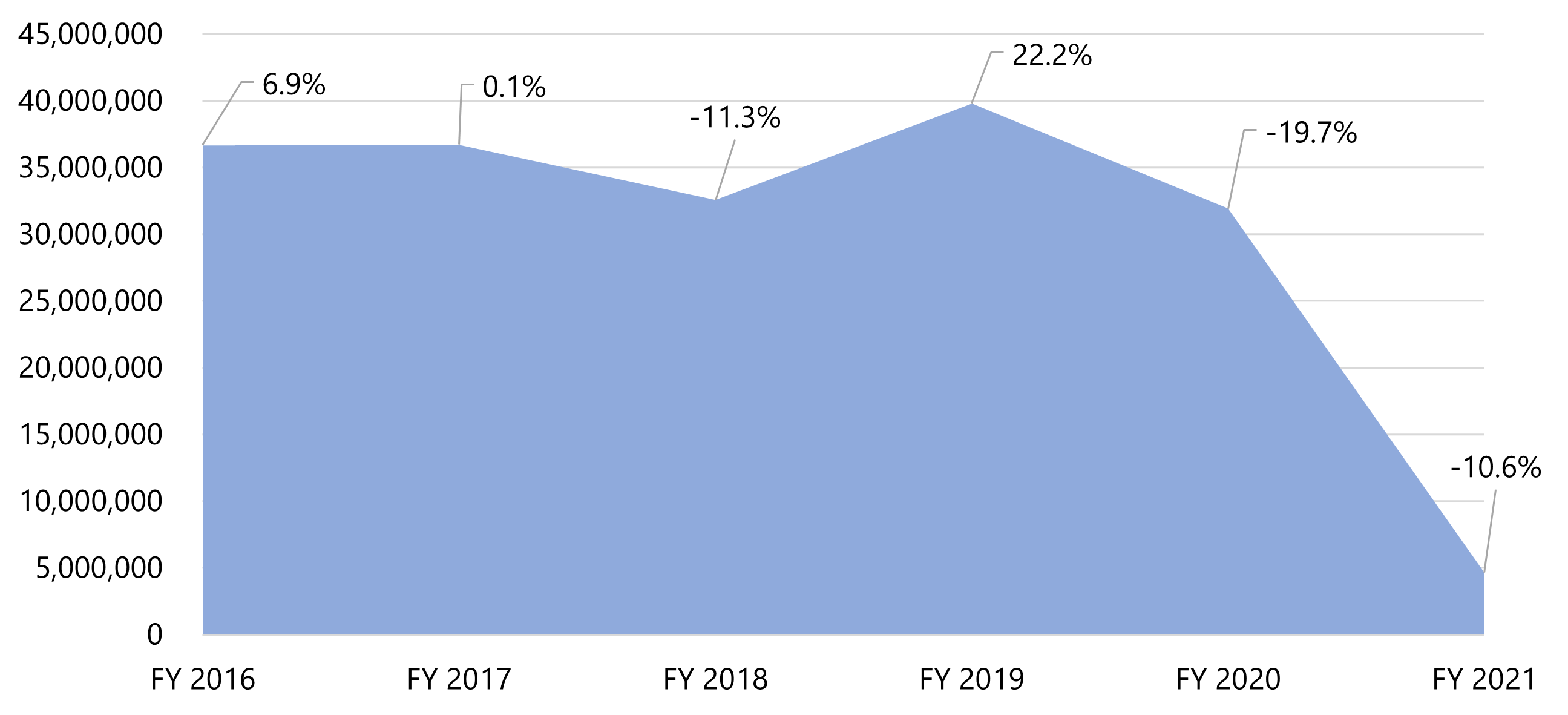
After recently visiting the Keys, I was reminded why the area continues to persevere during tough economic periods. Deep-sea fishing for blue marlin, swimming with dolphins, boating excursions and activities, snorkeling the only living coral reef in the United States, spending days on white sand beaches, and bathing in crystal clear ocean and gulf waters are just some of the tourist attractions that consistently drive leisure demand here. It has been noted by several hospitality professionals that leisure markets across the nation, specifically coastal markets, are performing better than the typical urban and suburban commercial- and meeting/group-driven hospitality markets, which is certainly the case in the Florida Keys. The Florida Keys weather is highly desirable among leisure travelers, and the year-round warm climate generates an influx of demand throughout the year, with peak travel season beginning in December and ending in April.
Nevertheless, the decline in travel due to the ongoing global pandemic has negatively affected the Florida Keys economy, particularly because the hospitality and tourism industries represent the market’s primary economic drivers. In response to the COVID-19 pandemic, in late March 2020, Monroe County officials restricted tourists and non-county residents from driving or flying into the Keys in attempt to reduce the spread of the novel coronavirus. The immediate stop in travel across the globe, coupled with the county-wide restrictions, correlated to sharp declines in market performance in both April and May, as illustrated in the graph below per Monroe County’s bed-tax collection amounts. Several hotels, restaurants, and retail shops also closed their businesses during that time.
In June, travel restrictions were lifted given the low rate of coronavirus infection cases, relative to the rest of the country. Upon the Keys reopening, an immediate recovery in market performance was registered in both June and July, also demonstrated below. According to local tourism officials, prior to COVID-19, leisure travelers from the United States represented approximately 75% of overall visitation, with a mere 5% representing domestic business travelers, and the remaining 20% being categorized as international travelers.
Monroe County Florida Monthly Bed Tax Revenue through November 30, 2020
 Source: Monroe County Tourism Development Council
Source: Monroe County Tourism Development Council
Monroe County Florida Bed Tax Revenue Percentage Rate through November 30, 2020 Source: Monroe County Tourism Development Council
Source: Monroe County Tourism Development Council

Monroe County Florida Bed Tax Revenue Percentage Rate through November 30, 2020

According to local tourism officials and market participants, demand segmentation throughout the Keys has shifted recently, with about 95% of demand being derived from transient leisure guests, with majority of travelers arriving from regional markets, such as the Southeast, as opposed to national markets. It was also noted there has been a new source of demand in the area from remote workers and home-schooling families. The remaining 5% includes a mix of government and corporate-related demand and minimal meeting/ group demand. According to local tourism officials, international travelers have not returned as a major source of demand since the pandemic, and flight restrictions were implemented to many European and Asian countries, which act as principal sources of demand for the area.
Additionally, according to local airport authorities, Key West International Airport has recently added several new routes and flights given the increase of domestic travel into the Florida Keys over the last several years, including more domestic travel during the global pandemic, which has forced many U.S. travelers to find alternative vacation options than traveling international. Nonstop service to/from Dallas/Fort Worth International Airport began in June 2018, and nonstop service to/from Houston’s George Bush Intercontinental Airport began in December 2020. Jet Blue recently announced new nonstop service to/from New York’s John F. Kennedy International Airport and Boston Logan International Airport beginning on February 11, 2021. Lastly, approximately $28 million in projects at Key West International Airport are in the works to accommodate expectations of continued growth and expansion over the next several years.
After several discussions with market participants, it was noted that several challenges remain, such as booking periods becoming shorter, a majority of travelers coming from the regional markets (as opposed to national and international markets), and quality labor and staffing issues continuing to be an obstacle for operators, as well as keeping guests safe with a very new and unknown virus, creating new hurdles for operators to overcome. On the other hand, positive points mentioned include the area’s expansive offering of tourist-related outdoor activities supported by the warm climate, the reliance on property marinas and resulting docking fees (given the area’s popularity and reduced boating travel due to the pandemic, there has been an increase in demand for docking in the area), and the county-wide restrictions that reduced infection cases now boosting traveler confidence; moreover, operators are capitalizing on their resort-style property layouts to allow easy social-distancing practices, and sales managers are working with local government contract demand given the several military bases and government buildings in the Key West area.
History has taught us that the Florida Key’s lodging market has consistently rebounded from a national or local crisis and has often done so ahead of national performance averages. The Florida Keys Lodging market should be expected to remain resilient during this global crisis given its iconic destination status with numerous tourist attractions, positive historical performance, promising recent trends, low infection rates, leisure-oriented market (with fewer restrictions than other lodging markets), and numerous resort-style properties with open layouts; furthermore, market participants noted that hotel owners and operators have been proactive in their responses to cleanliness and CDC guidelines.
All of these factors point to an optimistic future for the Florida Keys hospitality and tourism industries. However, as the market enters its peak season and the uncertainty of the global pandemic continues, we will need to continue to observe the lodging market changes in the area, including hotel occupancy and rate performance, the recent significant shifts in demand segmentation, rebounds in international travel as travel restrictions are lifted, and the impact on traveler confidence with the distribution of the new COVID-19 vaccines.
HVS continues to regularly consult in Monroe County, with nearby offices in Palmetto Bay, Florida, led by John P. Lancet, MAI. Our Florida team is ready to assist you on any consulting needs.